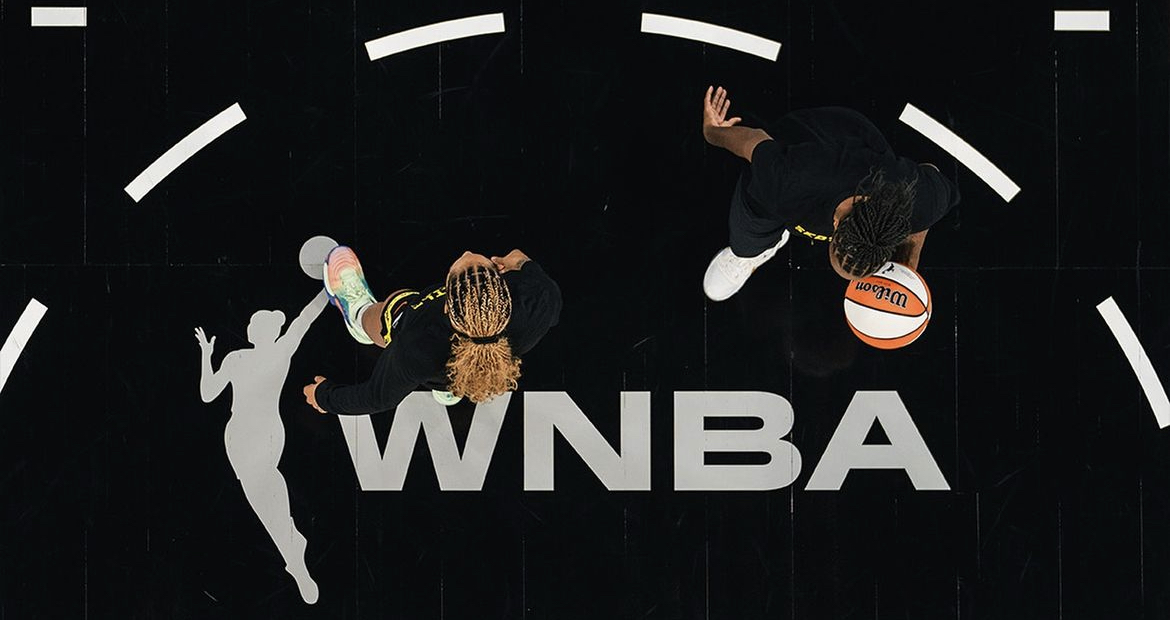A victorious night for the Connecticut Sun, took a turn for the worse by a disturbing incident involving guard DiJonai Carrington. The Sun advanced to their sixth consecutive WNBA semifinals by sweeping the Indiana Fever.
However, after the Sun’s 87-81 victory, Carrington revealed that she had received a threatening email containing graphic death and sexual assault threats, along with a racial slur.
The WNBA responded swiftly, issuing a statement on Wednesday denouncing the rise in hateful messages being directed toward players.
“While we welcome a growing fan base, the WNBA will not tolerate racist, derogatory, or threatening comments made about players, teams, and anyone affiliated with the league,” the WNBA said in its statement. The league further assured that it is actively monitoring these threats and is prepared to involve law enforcement when necessary.
Carrington chose not to comment on the vile email after the game, but her teammate, Alyssa Thomas, addressed the issue, pointing fingers at Indiana Fever fans for contributing to the increased vitriol WNBA players have been experiencing this season. “It’s been a lot of nonsense,” said Thomas. “I’ve never been called the things that I’ve been called on social media, and there’s no place for it. Basketball is headed in a great direction. But we don’t want fans that are going to degrade us and call us racial names.”
Thomas isn’t the only player to note the shift in fan behavior. While the WNBA has seen a surge in attention this season, particularly with the arrival of rookies Caitlin Clark and Angel Reese, this boost in visibility has also brought an unwelcome side effect—more toxicity in online spaces.
Fever head coach Christie Sides echoed Thomas’ sentiment, noting that her own team has faced a barrage of “hurtful, hateful speech” throughout the season. Earlier this year, Fever forward Aliyah Boston felt compelled to delete her social media accounts to escape the flood of negativity.
The darker side of fandom is not a new issue, but it has intensified alongside the WNBA’s growing popularity. Clark, who has been at the center of attention for much of her rookie season, made it clear earlier this summer that she doesn’t condone fans using her name to spread hate.
“Everybody in our world deserves the same amount of respect,” Clark said in June. “The women in our league deserve the same amount of respect, so people should not be using my name to push those agendas.”
Despite her plea, fans have continued to target Clark’s opponents. Diamond DeShields, who committed a flagrant foul against Clark earlier this season, was the subject of a particularly heinous comment on social media that referenced her past health battle.
After DeShields had a spinal cord tumor removed in 2020, one post read, “That tumor should’ve taken her out.”
Carrington, who has faced off against Clark multiple times this season, previously said, “The Indiana Fever have the nastiest fans in the W. Ew,” Carrington posted on X (formerly Twitter) on Aug. 28. Reese, another rookie, also reported receiving hateful messages from Clark’s fans earlier this year.
The escalation of online hate has reached the point where WNBA players are calling on the league to take more direct action. “The WNBA needs to check these fans,” said Thomas, urging the league to step in and regulate the increasingly toxic environment.
This sentiment was reinforced by Sun head coach Steph White, who pointed out the role online trolls play in shaping negative narratives about the league. White hopes that media outlets can refocus on the game itself rather than allowing hate-fueled discourse to dominate.
WNBA Commissioner Cathy Engelbert was also questioned recently about the intensifying negativity surrounding the league. When asked about the online harassment during an interview on CNBC’s “Power Lunch,” Engelbert initially framed the rivalry-driven discourse as a positive sign for the league’s exponential rise.
After the backlash from players in the league, Engelbert issued an apology, acknowledging that she had missed the mark in her initial comments.


